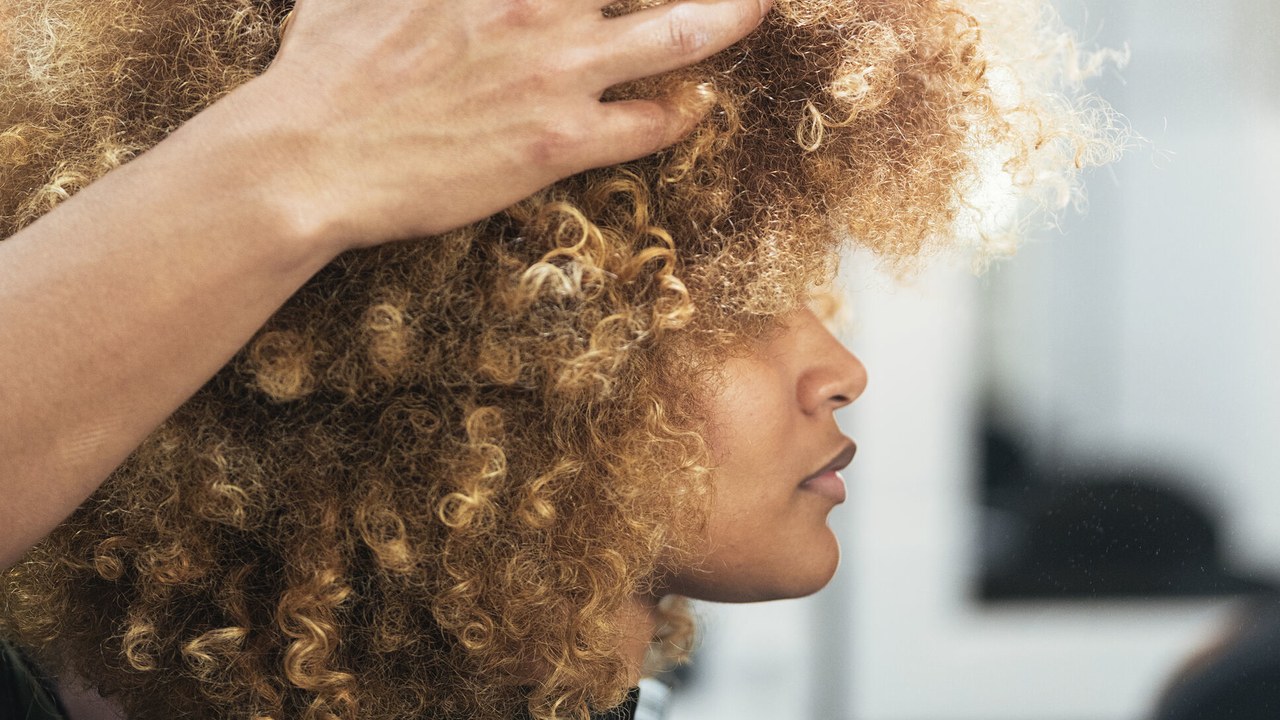Salons Are Charging Extra Fees for 'Textured' Hair. Black Women Have Had Enough

Even women who have access to top tier stylists and salons say they’ve had similar experiences. Dana Oliver, beauty director at Yahoo Lifestyle, says she’s constantly searching for a salon that she can call “The One.” “There aren’t many stylists who are trained in caring for my thick, kinky coils, or even skilled at arming me with the knowledge and tools to maintain my unique strands at home or in-between salon visits,” she tells Glamour. “This has resulted in a never-ending and extremely costly journey. I don’t trust just anyone with my curly hair.”
Oliver says that, even when she goes to Black-owned salons, she sometimes receives “side-eyes” and “hard glances.” “Because my curls are tighter and require a bit more patience, I’ve been unfairly charged more for a simple wash and blow-dry styling,” she says. “It’s gone as far as salon owners calculating in their head right in front of me the ‘extra charges’ for having to style my curly hair.” It’s a situation that makes her feel disrespected and undervalued. “Wearing my natural hair makes me proud and no one should make me feel less than or question that.”
Khalea Underwood, beauty editor at The Zoe Report, feels the same. Her grandmother was a hairstylist, so she views time in the chair as her safe space, but as someone with “coily and fragile” hair, she frequently feels anything but. “Most stylists don’t know how to do my hair, and I feel like I’m a part of some weird science experiment or class demonstration in those instances,” she says. “I’ve had experiences where I’ve been told flat out that I’d be charged extra because my hair is ‘thick’—coded language for natural and unmanageable in their eyes. But more often than not, it’s the body language and inquisitive stares that makes me feel out of place.”
While many salons will charge additional fees for longer lengths, density is a somewhat murkier classification. Someone with fine hair could have what constitutes “a lot” of hair, but as Underwood’s concern raises, they might not be charged a fee like someone with kinky coils would because of the unfair perception that black hair is “unruly.” “We should be able to go to any salon and get quality treatment at fair price points without feeling ostracized for our textures,” says Underwood. “I shouldn’t be penalized for my natural hair texture. It’s not like I can help it.”
As is usually the case with viral tweets like Rae’s, Aveda reps reached out almost immediately to have a conversation and try to reconcile the situation. And Rae says she’s been happy with her interactions with the company so far. “They’ve gone above and beyond to make sure my local situation was handled, rectified, and refunded,” she says. Aveda also provided Glamour with the following statement: “At Aveda, we are committed to inclusively delivering the very best in service, embracing all hair types. We in no way condone or tolerate discriminatory behavior or profiling policies of any kind. We are deeply apologetic for this situation as it is not in line with our values. We value consumer feedback and are working with our independently owned salons to prevent this from happening again.”
Still, Rae’s aware the company’s responses, as good as they’ve been, are just that for the time being: responses. “I’m waiting to make sure they follow through with their promises—that it’s not just lip service,” she says.
In the meantime, she hopes a couple of things come out of her situation. First, a greater examination of the policies at all salons—Aveda or otherwise—regardless of who they cater to. “My hope is that salons pay more attention to ensuring customers feel seen, heard, known, and included in the conversation, and that they also feel respected,” she says.
Second, she hopes it’ll shed light on the fact that women who are born with naturally curly hair are not an inconvenience. “I want this to change the language around folks of color’s hair, period,” she says. Lastly, she’s hopeful it’ll push salons that style all hair types to engage in diversity training and educate stylists on cultural awareness and sensitivities. “If they’re trying to serve natural clients, then they really need to do the due diligence and train their front desk girls, their stylists, their managers, to really serve the client that they say they’re serving in the most excellent way,” says Rae. “Regardless of their nationality, anyone who steps in the salon should be treated fairly by all staff.”
